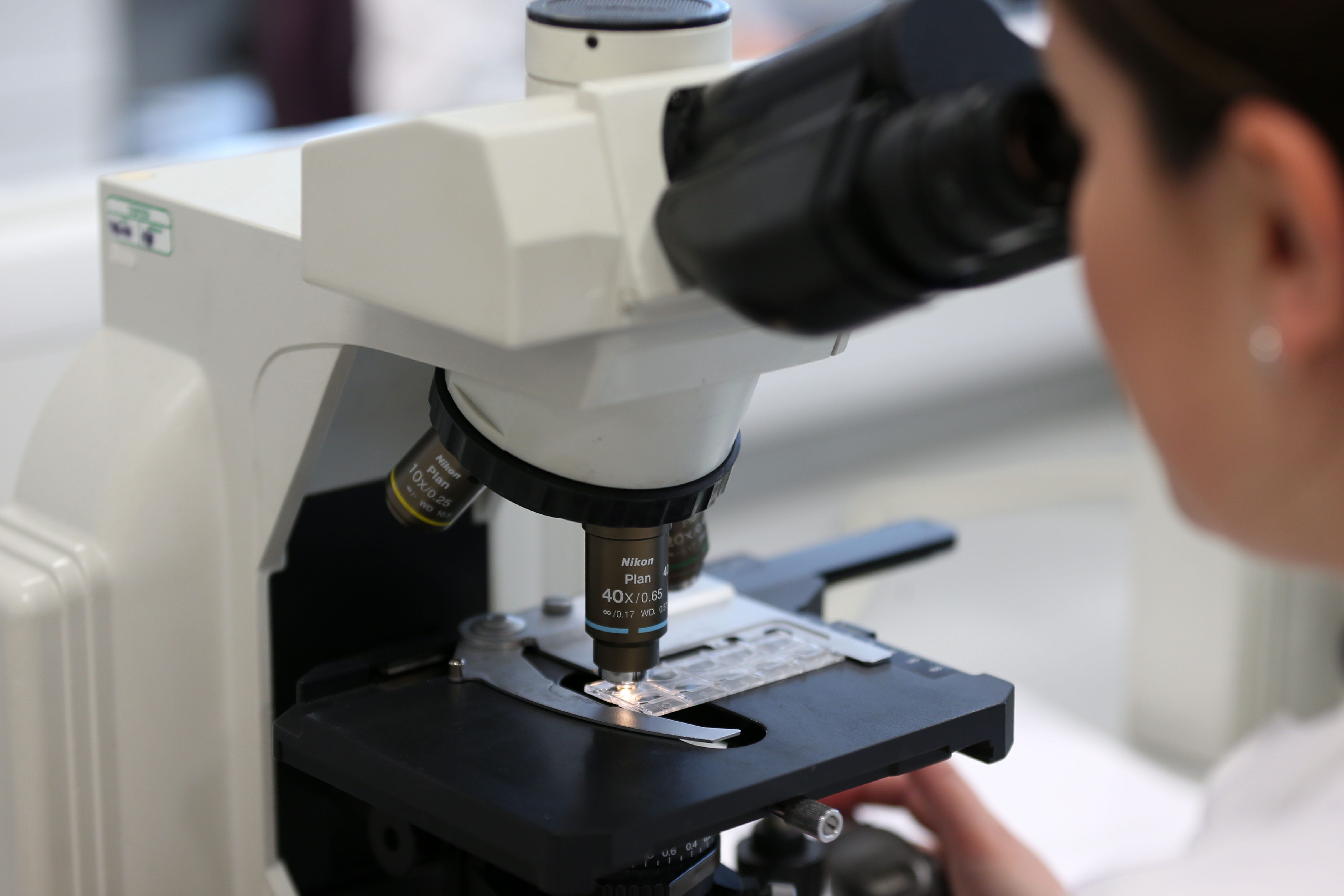AI could predict patient’s risk of bowel cancer returning, study finds
Researchers trained the algorithm to look at the level of certain immune cells in tumour tissue samples.

Your support helps us to tell the story
From reproductive rights to climate change to Big Tech, The Independent is on the ground when the story is developing. Whether it's investigating the financials of Elon Musk's pro-Trump PAC or producing our latest documentary, 'The A Word', which shines a light on the American women fighting for reproductive rights, we know how important it is to parse out the facts from the messaging.
At such a critical moment in US history, we need reporters on the ground. Your donation allows us to keep sending journalists to speak to both sides of the story.
The Independent is trusted by Americans across the entire political spectrum. And unlike many other quality news outlets, we choose not to lock Americans out of our reporting and analysis with paywalls. We believe quality journalism should be available to everyone, paid for by those who can afford it.
Your support makes all the difference.Artificial intelligence (AI) could help doctors identify early-stage bowel cancer patients who are most at risk of the disease coming back, a study has found.
It could also help some people avoid unnecessary chemotherapy, according to researchers.
For the study, academics from the University of Leeds used an AI algorithm to determine the level of CD3 – a type of immune cell – in early-stage bowel cancer tumours.
After analysing tumour tissue samples from 868 patients taking part in the Quasar trial, the algorithm developed what researchers describe as a “CD3 Score”, which is based on the number of cells in different areas of the tumour.
This is very useful information for doctors and their patients facing difficult decisions about whether or not to proceed with chemotherapy after surgery
Those with a high score had a lower level of CD3 cells, while those with a low score had higher levels.
From the 868 samples, researchers identified an 8.5% chance of bowel cancer returning within two years of surgery and chemotherapy.
AI was able to identify low-risk patients, whose chance of cancer returning was 3.8%, or 6.6% in cases where they did not have chemotherapy.
The algorithm also found those in the high-risk group had a 23.5% chance of their cancer returning in two years without chemotherapy, which fell to 14.3% with treatment.
Lead author Dr Christopher Williams, Cancer Research UK clinical trials research fellow at the University of Leeds’ School of Medicine, said: “Current methods for deciding which patients with early-stage bowel cancer need chemotherapy and which do not are unreliable.
“Many people receive chemotherapy when they don’t need it, and unfortunately some of the people who are not offered chemotherapy go on to experience cancer recurrence.
“It is very difficult to decide whether people with stage II colon cancer in particular need chemotherapy after their surgery as there is generally a lower risk that this cancer will come back.
“The assessment method we trialled gave a stronger indication than any feature we currently assess as to whether a stage II cancer might come back.
“This is very useful information for doctors and their patients facing difficult decisions about whether or not to proceed with chemotherapy after surgery.”
This could be a really positive step for our bowel cancer community
Dr Williams added that the CD3 Score test “has the potential to be the most important test patients with early-stage bowel cancer ask for”.
“It’s fast, accurate and simple, and we hope it will make conversations about chemotherapy after surgery much more straightforward for patients and their doctors,” he said.
Kandavel Shanmugam, clinical research lead at Roche Tissue Diagnostics, which has patented the CD3 Score, worked with the research team from Leeds.
He added: “Our study underscores the potential importance of the CD3 Score test to bowel cancer patients, providing a critical insight to physicians in driving chemotherapy options for their patients.”
Genevieve Edwards, chief executive of Bowel Cancer UK, said: “This could be a really positive step for our bowel cancer community.
“We’re keen to see new ways to predict treatment response and improve the guidance clinicians can give patients and will follow the progress of this test with interest.”